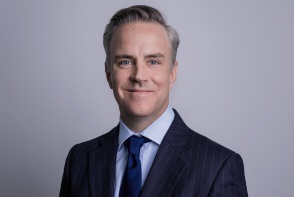Over the last two years of the coronavirus pandemic, property/casualty insurers have been rigorously put to the test in multiple ways. According to Insurance Information Institute CEO Sean Kevelighan, the industry has passed with flying colors.

Kevelighan, speaking during the III Joint Industry Forum on Dec. 2 in New York, argued that insurers dealt successfully with the pandemic, a surge in climate change-related natural catastrophes and innovation challenges all at the same time. (This was the first time III held a Joint Industry Forum in person in nearly two years.)
“Insurance has really proved itself as being a critical leader during disruption,” Kevelighan said.
He noted insurers gave back nearly $14 billion in auto premiums after pandemic lockdowns slowed driving substantially. The industry also committed over this period to nearly $300 million in charitable giving. What’s more, when the U.S. faced record unemployment at the pandemic’s early stages, the insurance industry both kept people employed and hired new staff.
“And we were doing all of this while innovating,” Kevelighan said. “We innovated as an industry for 10 years [worth] in one during COVID.”
All of this has led to “a new normal” for insurers, he explained, as they confront insurance loss costs up nearly 700 percent since the 1980s, with increasingly costly catastrophe events made worse by climate change. With this in mind, Kevelighan said that insurers are pushing to help communities understand that insurance isn’t just about protecting from risk, but managing it through adaptive behavior.
“We know how to lead for [customers]. We know how to manage risks for them,” Kevelighan said, “We need our customers, our communities and our public policy makers to fully understand that more needs to be done in terms of how we’re living.”
Kevelighan added that insurers have an important role to play, but “insurance is only going to be able to go so far” unless people can also change their behaviors and how they are living to mitigate risks.




















 Earnings Wrap: With AI-First Mindset, ‘Sky Is the Limit’ at The Hartford
Earnings Wrap: With AI-First Mindset, ‘Sky Is the Limit’ at The Hartford  Allianz Built an AI Agent to Train Claims Professionals in Virtual Reality
Allianz Built an AI Agent to Train Claims Professionals in Virtual Reality  Nearly 26.2M Workers Are Expected to Miss Work on Super Bowl Monday
Nearly 26.2M Workers Are Expected to Miss Work on Super Bowl Monday  Beazley Agrees to Zurich’s Sweetened £8 Billion Takeover Bid
Beazley Agrees to Zurich’s Sweetened £8 Billion Takeover Bid 



